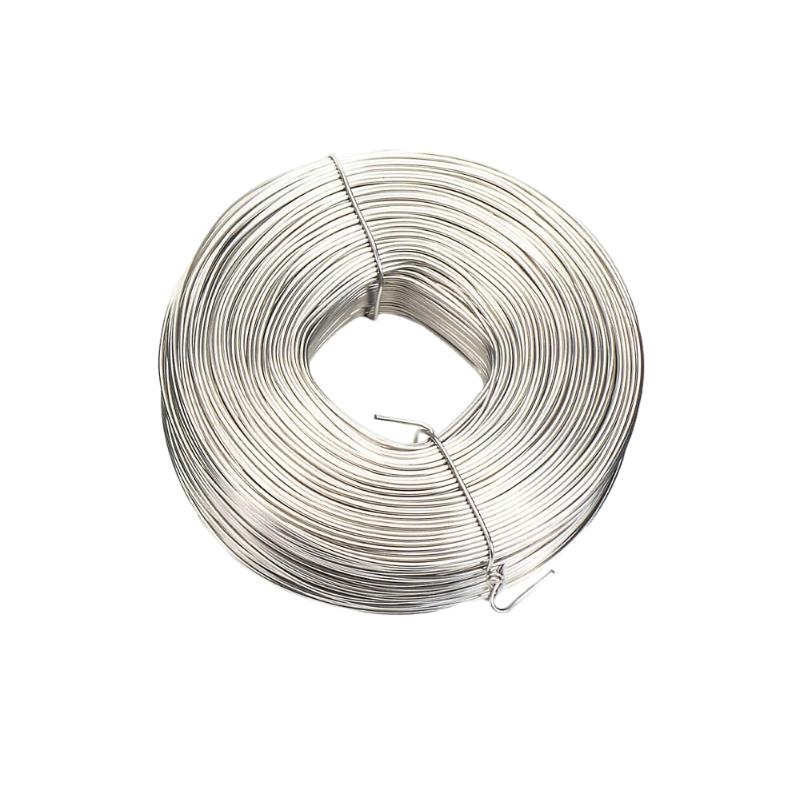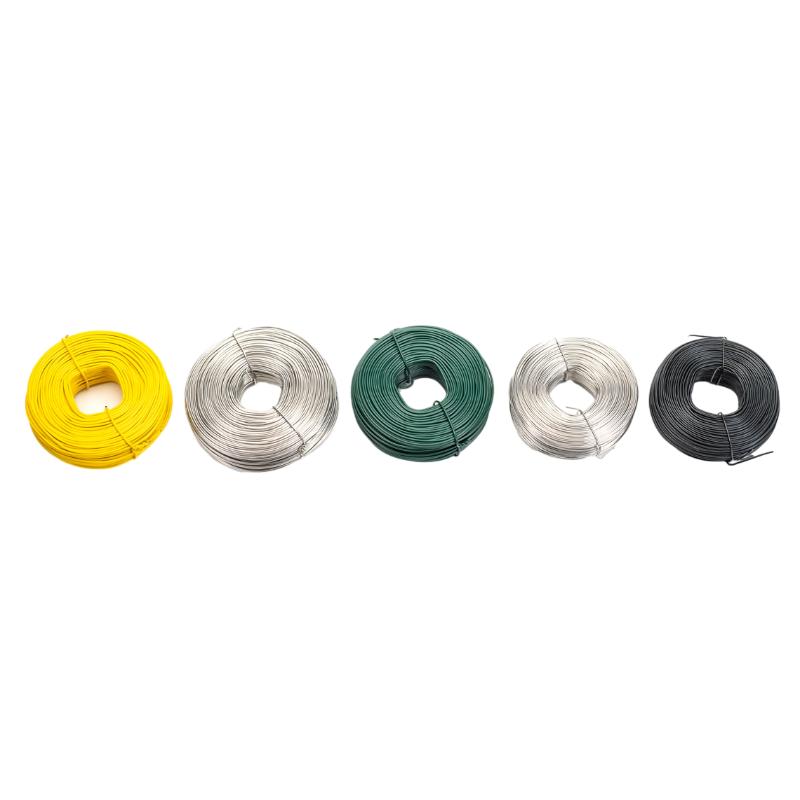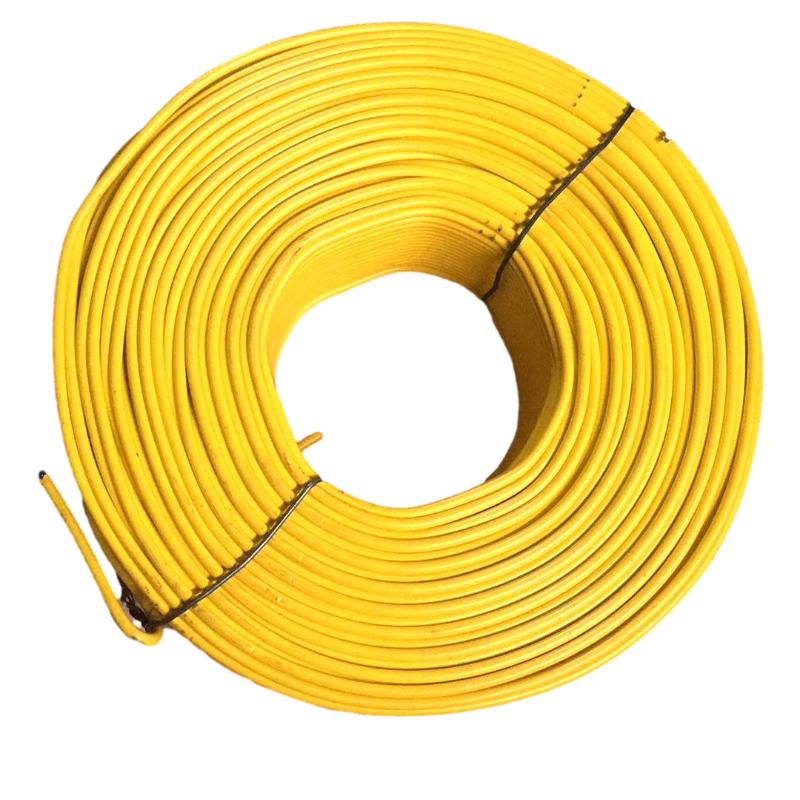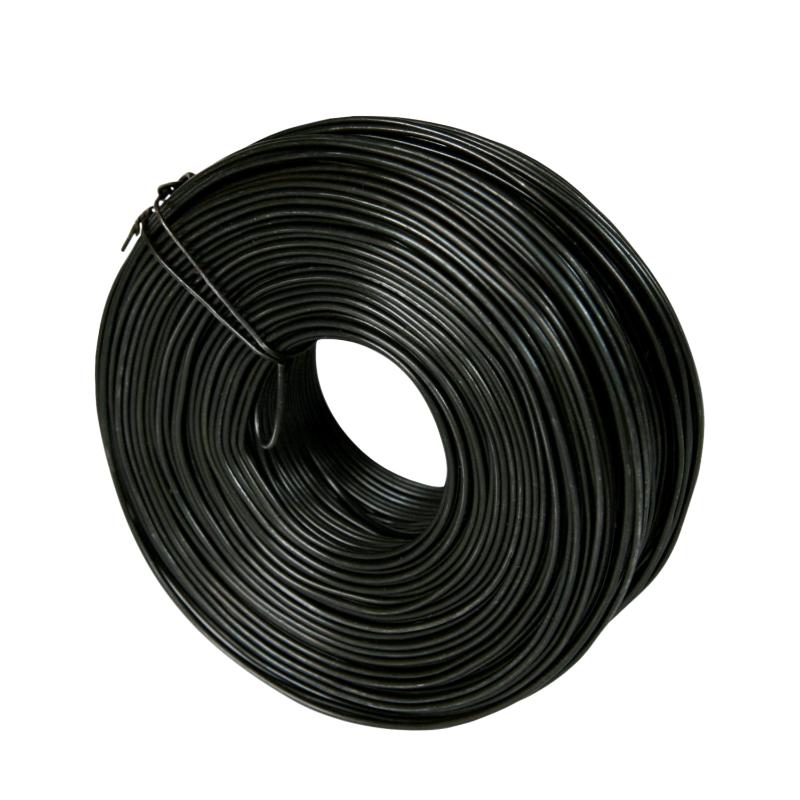
- Mobile Phone
- +8613931874955
- sales@cntcmetal.com
Wholesale Iron Wire: High-Quality & Durable for All Uses
The Indispensable Role of Wholesale Iron Wire in Modern Industries
In the intricate fabric of modern construction, agriculture, and manufacturing, the demand for high-quality iron wire is constant and critical. Specifically, the procurement of wholesale iron wire stands as a cornerstone for numerous industrial applications. This robust material, ranging from soft annealed types used in binding to galvanized variants offering superior corrosion resistance, underpins the structural integrity and operational efficiency across diverse sectors. Understanding its properties, manufacturing nuances, and extensive applications is paramount for B2B stakeholders aiming for optimal performance and cost-effectiveness. The strategic selection and sourcing of this essential commodity directly impacts project timelines, material longevity, and overall return on investment, making informed decisions on supplier capabilities and product specifications indispensable.
The market for wholesale iron wire is dynamic, influenced by global economic trends, raw material prices, and technological advancements in wire drawing and coating. Key market drivers include the burgeoning construction sector in developing economies, increasing infrastructure projects, and the perennial need for reliable fencing and agricultural support solutions. Furthermore, specialized applications in packaging and crafting contribute significantly to demand. Manufacturers are continuously innovating to produce wire with enhanced properties, such as higher tensile strength for demanding structural uses or improved ductility for intricate fabrication. This evolution ensures that wire of iron remains adaptable to new challenges and continues to be a versatile component in countless industrial processes worldwide, driving efficiency and durability.
The Meticulous Manufacturing Process of Iron Wire
The production of iron binding wire involves a sophisticated series of steps designed to transform raw steel rods into a highly versatile and durable finished product. The journey typically begins with high-quality carbon steel wire rods (e.g., Q195, Q235), which undergo rigorous cleaning to remove impurities and scale, often through acid pickling. Following this, the rods are drawn through a series of progressively smaller dies, a process known as wire drawing. This cold working not only reduces the diameter but also significantly increases the tensile strength and hardness of the material. Controlled lubrication during drawing prevents excessive friction and heat buildup, ensuring a smooth and consistent surface finish.

For softer wires, such as those used for bundling or baling, an annealing process is critical. Annealing involves heating the drawn wire to a specific temperature and then slowly cooling it. This heat treatment recrystallizes the steel's grain structure, enhancing its ductility and making it highly pliable and easy to work with, a key characteristic for soft binding iron wire. For wires requiring corrosion resistance, galvanization is applied. This can be achieved through electro-galvanizing, which uses an electric current to bond a zinc coating, or hot-dip galvanizing, where the wire is immersed in molten zinc. Hot-dip galvanization generally provides a thicker and more durable zinc layer, offering superior protection against environmental elements. Each step is subjected to stringent quality control, adhering to standards like ISO 9001 and often specific ASTM or BS standards for material composition and mechanical properties, ensuring consistent quality and predictable performance for wire for iron applications. The expected service life can vary from a few years for unprotected wire in harsh environments to decades for properly galvanized products in moderate conditions, particularly in industries like petrochemical and water treatment where corrosion is a major concern, highlighting its critical anti-corrosion properties.
Key Technical Parameters and Specifications of Iron Wire
When sourcing wholesale iron wire, understanding the technical specifications is crucial for matching the product to the exact application requirements. These parameters dictate the wire's strength, durability, flexibility, and resistance to environmental factors. For instance, tensile strength, measured in N/mm², indicates the maximum stress the wire can withstand before breaking. Ductility, often expressed as elongation percentage, signifies how much the wire can stretch before fracturing, which is vital for applications requiring bending or knotting.
Typical Wholesale Iron Wire Specifications
| Parameter | Soft Annealed Iron Wire | Electro Galvanized Iron Wire | Hot-Dip Galvanized Iron Wire |
|---|---|---|---|
| Material Grade | Q195 / SAE 1006 / Low Carbon Steel | Q195 / SAE 1006 / Low Carbon Steel | Q195 / SAE 1006 / Low Carbon Steel |
| Wire Diameter | 0.5mm - 5.0mm (BWG 24 - BWG 6) | 0.5mm - 5.0mm (BWG 24 - BWG 6) | 1.0mm - 5.0mm (BWG 19 - BWG 6) |
| Tensile Strength | 350 - 550 N/mm² | 350 - 650 N/mm² | 350 - 600 N/mm² |
| Elongation | ≥ 15% | ≥ 10% | ≥ 12% |
| Zinc Coating Weight | N/A (bare metal) | 10 - 30 g/m² | 40 - 300 g/m² |
| Coil Weight | 10 kg - 1000 kg | 10 kg - 500 kg | 25 kg - 1000 kg |
| Application Standards | ASTM A853, EN 10016-2 | ASTM B498, EN 10244-2 | ASTM A641, EN 10244-2 |
The type of coating, such as hot-dip galvanized iron barbed wire or electro galvanized iron wire, directly impacts corrosion resistance and suitability for outdoor or harsh environments. Zinc coating weight is a critical indicator of longevity; higher coating weights generally provide extended protection. Furthermore, coil weight and packaging types (e.g., small coils, jumbo rolls, straight cut wire) are important logistical considerations for efficiency in handling and storage. These precise specifications allow buyers to select the most appropriate iron and wire product for their specific needs, ensuring optimal performance and compliance with industry regulations.
Versatile Applications and Strategic Advantages
The versatility of wholesale iron wire extends across a multitude of industries, making it an indispensable material globally. In construction, binding iron wire is extensively used for securing rebar reinforcements, ensuring the structural integrity of concrete elements. Its pliability allows for quick and efficient tie-downs, significantly speeding up construction timelines. In agriculture, it serves as a fundamental component for vineyard trellises, crop support, and various fencing solutions, protecting livestock and delimiting property.

Beyond these traditional uses, specialized forms like iron barbed wire provide robust security solutions for perimeter defense, while iron mesh wire is crucial for manufacturing gabions, sieves, and protective barriers. The inherent strength and malleability of soft iron wire also make it ideal for baling applications in recycling industries, compressing waste materials into manageable bundles. Key advantages include its cost-effectiveness, high tensile strength-to-weight ratio, and the ability to be easily processed into various forms and gauges. Furthermore, galvanized variants offer significant corrosion resistance, prolonging service life and reducing maintenance costs, which translates into substantial long-term savings for large-scale industrial projects.
Choosing the Right Partner: Manufacturer Comparison and Custom Solutions
Selecting a reliable manufacturer for wholesale iron wire is as crucial as the product itself. Reputable suppliers distinguish themselves through stringent quality control, adherence to international standards (e.g., ISO 9001 certification), and a proven track record of consistent product performance. Factors to consider include the manufacturer's raw material sourcing, the technological sophistication of their production lines, and their capacity for producing diverse wire types and gauges. A supplier's ability to provide comprehensive technical data, material test reports, and third-party certifications reinforces their commitment to quality and transparency, vital for long-term B2B partnerships.

Many industrial applications require wire of iron with specific properties that are not always available off-the-shelf. This is where a manufacturer's capacity for custom solutions becomes invaluable. Whether it's a unique wire diameter, a specific tensile strength requirement, a particular zinc coating thickness, or specialized packaging such as straightened and cut lengths for automated processes, a flexible supplier can tailor production to meet these bespoke needs. For example, some projects might demand a very specific nickel iron wire alloy for extreme temperature resistance or specific electrical properties. Experienced manufacturers often offer consultation services to help clients define their exact requirements, ensuring the customized product perfectly integrates with their existing systems and processes, delivering optimal functional and economic benefits. This proactive approach to customer service underscores a commitment to partnership and problem-solving, going beyond mere transactional exchanges.
Application Case Studies and Customer Trust
The proven efficacy of iron & wire products in real-world scenarios is the ultimate testament to their quality and reliability. In a recent large-scale infrastructure project involving bridge construction, high-tensile wholesale iron wire was utilized to reinforce concrete structures, chosen for its consistent diameter uniformity and superior tensile strength, which minimized material waste and expedited the rebar tying process. This resulted in a 15% reduction in labor hours compared to traditional methods, demonstrating significant operational efficiency and cost savings.

Another notable application involves a major agricultural client who implemented galvanized iron barbed wire for extensive livestock fencing. The choice was based on the wire's robust zinc coating (exceeding 200 g/m²), which provided exceptional resistance to harsh weather conditions and significantly extended the fence's lifespan, reducing the need for premature replacements. Feedback consistently highlighted the ease of installation and the durability of the fence, even after multiple severe weather events. Such successful applications underscore the importance of aligning product specifications with environmental and operational demands. We are committed to fostering enduring client relationships through unparalleled product quality, consistent performance, and dedicated post-sales support, ensuring that our wholesale iron wire consistently meets the high expectations of our industrial partners.
Frequently Asked Questions (FAQ)
Q1: What is the primary difference between electro galvanized and hot-dip galvanized iron wire?
A1: The main difference lies in the zinc coating method and thickness. Electro galvanized iron wire uses an electrolytic process resulting in a thinner, more uniform zinc layer (typically 10-30 g/m²), offering moderate corrosion resistance and a brighter finish. Hot-dip galvanized wire is produced by immersing the wire in molten zinc, creating a thicker, more durable coating (40-300 g/m²) that provides superior and longer-lasting corrosion protection, ideal for outdoor and harsh environments.
Q2: How do you ensure the quality of your wholesale iron wire products?
A2: Our commitment to quality is upheld through a multi-stage process. We source raw materials from reputable suppliers with certified material compositions. Our manufacturing facilities adhere to ISO 9001 quality management standards, incorporating in-line inspections at every stage, from wire drawing to coating and packaging. Final product testing includes checks for tensile strength, elongation, zinc coating weight, and dimensional accuracy, with all data meticulously recorded and available for client verification.
Q3: Can you provide custom specifications for wholesale iron wire orders?
A3: Yes, we specialize in providing tailored solutions for our B2B clients. We can customize wire of iron based on specific diameter requirements, tensile strength, coating type and thickness, and even packaging formats (e.g., specific coil weights, cut lengths). Our technical team works closely with clients to understand their unique application needs and recommends the optimal specifications to ensure product performance and integration with their operations.
Delivery Timelines, Warranty, and Customer Support
Understanding the logistical aspects of wholesale iron wire procurement is paramount for efficient project planning. Our standard delivery lead times typically range from 15 to 30 business days, depending on order volume, product specifications, and current production schedules. For urgent requirements or large-scale projects, we offer expedited options and work collaboratively with clients to establish realistic and achievable delivery timelines. We maintain robust inventory levels for common iron binding wire types to facilitate quicker dispatch for standard orders.
We stand behind the quality of our iron and wire products with a comprehensive warranty against manufacturing defects and material failures under normal use conditions. Specific warranty terms vary by product type and application, and detailed information is provided with each quotation. Our commitment extends beyond the point of sale through dedicated customer support. Our technical support team is available during business hours to address any queries regarding product specifications, application guidance, or troubleshooting. We also provide post-delivery assistance for any logistical or product performance concerns, ensuring complete client satisfaction and fostering long-term partnerships built on trust and reliability.
References
- American Society for Testing and Materials (ASTM) Standards for Steel Wire and Wire Products.
- International Organization for Standardization (ISO) 9001: Quality Management Systems – Requirements.
- European Standard EN 10244-2: Steel wire and wire products – Non-ferrous metallic coatings on steel wire.
- British Standards Institution (BSI) standards related to steel wire.
- "Handbook of Metallurgical Process Design" by George E. Dieter, ASM International.
share:
-
Wall Ties for Concrete: Invisible Guardians of Building Structural StabilityNewsAug.08,2025
-
Timber Frame Wall Ties: Stable Bonds for Load TransmissionNewsAug.08,2025
-
Stainless Steel Woven Wire Mesh: A versatile material from boundary protection to functional supportNewsAug.08,2025
-
Powder Coat Coil Springs: Creating peace of mind and reliability with sturdy protectionNewsAug.08,2025
-
Floor Standing Sign Holder: A Powerful Assistant for Flexible DisplayNewsAug.08,2025
-
Binding Iron Wire: An Invisible Bond for Building StabilityNewsAug.08,2025
-
Yard Sign Stakes: Reliable Guardians of Outdoor SignsNewsAug.04,2025



















